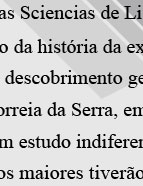

................................
Traditional diplomatic history, just as it originated in the 19th century, based on textual criticism and the collection of handwritten documents from royal chanceries to reconstruct events, lacks the methodological tools for studying the history of international relations, viewed as the set of connections established among human groups through political borders. Does this mean that the markedly political strand of Diplomatic History makes it a separate discipline, included in the broader study of international relations?
Robert Frank succeeded Pierre Renouvin, Jean-Baptiste Duroselle, and René Girault, with whom he collaborated on Histoire des relations internationales contemporaines (1988, 1993), while Lucien Bély's studies contributed to new perspectives on international relations and diplomacy in the 17th and 18th centuries. Jeremy Black (2010) also explored the historical-cultural antecedents of diplomacy in the transition from the negotiation system of European courts to the increase and progression of multiple global interests and the establishment of the current embassy model. In Portugal, issues related to negotiation processes and protocol rituals have garnered the interest of numerous researchers, without forgetting recurring themes of Portuguese Diplomatic History, such as the definition of borders in the Middle Ages, relations with the Holy See, the United States, Russia, and Spain, the English alliance, the Restoration, the period of the French invasions, the First Republic and Portugal's entry into the First World War, the Estado Novo, and Portuguese neutrality during World War II, in addition to the problem of colonialism and the colonial war.
The research project Optima Pars – As Elites da Sociedade Portuguesa do Antigo Regime [Optima Pars – The Elites of Portuguese Society in the Ancien Regime] drew attention to the social profile of diplomats, the nature of their functions, and the types of missions they performed. There has been a renewed interest in the statesman, the political ideology of elites, and in diplomacy, which have emerged as central themes of various master's and doctoral theses. A modest revival in the publication of sources has also been seen.
